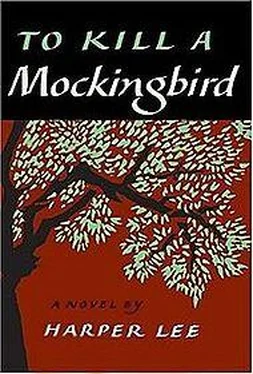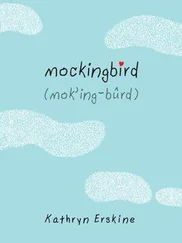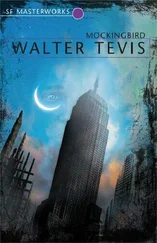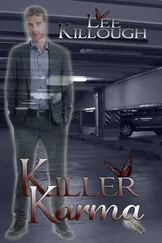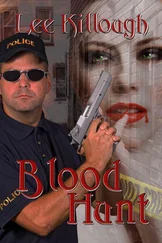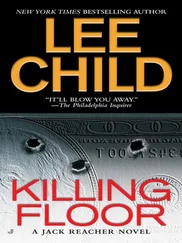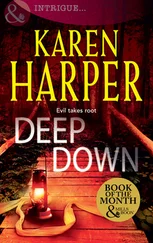Lee Harper - To Kill a Mockingbird
Здесь есть возможность читать онлайн «Lee Harper - To Kill a Mockingbird» весь текст электронной книги совершенно бесплатно (целиком полную версию без сокращений). В некоторых случаях можно слушать аудио, скачать через торрент в формате fb2 и присутствует краткое содержание. Жанр: Современная проза, на английском языке. Описание произведения, (предисловие) а так же отзывы посетителей доступны на портале библиотеки ЛибКат.
- Название:To Kill a Mockingbird
- Автор:
- Жанр:
- Год:неизвестен
- ISBN:нет данных
- Рейтинг книги:3 / 5. Голосов: 1
-
Избранное:Добавить в избранное
- Отзывы:
-
Ваша оценка:
- 60
- 1
- 2
- 3
- 4
- 5
To Kill a Mockingbird: краткое содержание, описание и аннотация
Предлагаем к чтению аннотацию, описание, краткое содержание или предисловие (зависит от того, что написал сам автор книги «To Kill a Mockingbird»). Если вы не нашли необходимую информацию о книге — напишите в комментариях, мы постараемся отыскать её.
To Kill a Mockingbird — читать онлайн бесплатно полную книгу (весь текст) целиком
Ниже представлен текст книги, разбитый по страницам. Система сохранения места последней прочитанной страницы, позволяет с удобством читать онлайн бесплатно книгу «To Kill a Mockingbird», без необходимости каждый раз заново искать на чём Вы остановились. Поставьте закладку, и сможете в любой момент перейти на страницу, на которой закончили чтение.
Интервал:
Закладка:
Two live oaks stood at the edge of the Radley lot; their roots reached out into the side-road and made it bumpy. Something about one of the trees attracted my attention.
Some tinfoil was sticking in a knot-hole just above my eye level, winking at me in the afternoon sun. I stood on tiptoe, hastily looked around once more, reached into the hole, and withdrew two pieces of chewing gum minus their outer wrappers.
My first impulse was to get it into my mouth as quickly as possible, but I remembered where I was. I ran home, and on our front porch I examined my loot. The gum looked fresh. I sniffed it and it smelled all right. I licked it and waited for a while. When I did not die I crammed it into my mouth: Wrigley’s Double-Mint.
When Jem came home he asked me where I got such a wad. I told him I found it.
“Don’t eat things you find, Scout.”
“This wasn’t on the ground, it was in a tree.”
Jem growled.
“Well it was,” I said. “It was sticking in that tree yonder, the one comin’ from school.”
“Spit it out right now!”
I spat it out. The tang was fading, anyway. “I’ve been chewin’ it all afternoon and I ain’t dead yet, not even sick.”
Jem stamped his foot. “Don’t you know you’re not supposed to even touch the trees over there? You’ll get killed if you do!”
“You touched the house once!”
“That was different! You go gargle — right now, you hear me?”
“Ain’t neither, it’ll take the taste outa my mouth.”
“You don’t ‘n’ I’ll tell Calpurnia on you!”
Rather than risk a tangle with Calpurnia, I did as Jem told me. For some reason, my first year of school had wrought a great change in our relationship: Calpurnia’s tyranny, unfairness, and meddling in my business had faded to gentle grumblings of general disapproval. On my part, I went to much trouble, sometimes, not to provoke her.
Summer was on the way; Jem and I awaited it with impatience. Summer was our best season: it was sleeping on the back screened porch in cots, or trying to sleep in the treehouse; summer was everything good to eat; it was a thousand colors in a parched landscape; but most of all, summer was Dill.
The authorities released us early the last day of school, and Jem and I walked home together. “Reckon old Dill’ll be coming home tomorrow,” I said.
“Probably day after,” said Jem. “Mis’sippi turns ‘em loose a day later.”
As we came to the live oaks at the Radley Place I raised my finger to point for the hundredth time to the knot-hole where I had found the chewing gum, trying to make Jem believe I had found it there, and found myself pointing at another piece of tinfoil.
“I see it, Scout! I see it—”
Jem looked around, reached up, and gingerly pocketed a tiny shiny package. We ran home, and on the front porch we looked at a small box patchworked with bits of tinfoil collected from chewing-gum wrappers. It was the kind of box wedding rings came in, purple velvet with a minute catch. Jem flicked open the tiny catch. Inside were two scrubbed and polished pennies, one on top of the other. Jem examined them.
“Indian-heads,” he said. “Nineteen-six and Scout, one of em’s nineteen-hundred. These are real old.”
“Nineteen-hundred,” I echoed. “Say—”
“Hush a minute, I’m thinkin’.”
“Jem, you reckon that’s somebody’s hidin’ place?”
“Naw, don’t anybody much but us pass by there, unless it’s some grown person’s—”
“Grown folks don’t have hidin’ places. You reckon we ought to keep ‘em, Jem?”
“I don’t know what we could do, Scout. Who’d we give ‘em back to? I know for a fact don’t anybody go by there — Cecil goes by the back street an’ all the way around by town to get home.”
Cecil Jacobs, who lived at the far end of our street next door to the post office, walked a total of one mile per school day to avoid the Radley Place and old Mrs. Henry Lafayette Dubose. Mrs. Dubose lived two doors up the street from us; neighborhood opinion was unanimous that Mrs. Dubose was the meanest old woman who ever lived. Jem wouldn’t go by her place without Atticus beside him.
“What you reckon we oughta do, Jem?”
Finders were keepers unless title was proven. Plucking an occasional camellia, getting a squirt of hot milk from Miss Maudie Atkinson’s cow on a summer day, helping ourselves to someone’s scuppernongs was part of our ethical culture, but money was different.
“Tell you what,” said Jem. “We’ll keep ‘em till school starts, then go around and ask everybody if they’re theirs. They’re some bus child’s, maybe — he was too taken up with gettin’ outa school today an’ forgot ‘em. These are somebody’s, I know that. See how they’ve been slicked up? They’ve been saved.”
“Yeah, but why should somebody wanta put away chewing gum like that? You know it doesn’t last.”
“I don’t know, Scout. But these are important to somebody....”
“How’s that, Jem...?”
“Well, Indian-heads — well, they come from the Indians. They’re real strong magic, they make you have good luck. Not like fried chicken when you’re not lookin’ for it, but things like long life ‘n’ good health, ‘n’ passin’ six-weeks tests... these are real valuable to somebody. I’m gonna put em in my trunk.”
Before Jem went to his room, he looked for a long time at the Radley Place. He seemed to be thinking again.
Two days later Dill arrived in a blaze of glory: he had ridden the train by himself from Meridian to Maycomb Junction (a courtesy title — Maycomb Junction was in Abbott County) where he had been met by Miss Rachel in Maycomb’s one taxi; he had eaten dinner in the diner, he had seen two twins hitched together get off the train in Bay St. Louis and stuck to his story regardless of threats. He had discarded the abominable blue shorts that were buttoned to his shirts and wore real short pants with a belt; he was somewhat heavier, no taller, and said he had seen his father. Dill’s father was taller than ours, he had a black beard (pointed), and was president of the L & N Railroad.
“I helped the engineer for a while,” said Dill, yawning.
“In a pig’s ear you did, Dill. Hush,” said Jem. “What’ll we play today?”
“Tom and Sam and Dick,” said Dill. “Let’s go in the front yard.” Dill wanted the Rover Boys because there were three respectable parts. He was clearly tired of being our character man.
“I’m tired of those,” I said. I was tired of playing Tom Rover, who suddenly lost his memory in the middle of a picture show and was out of the script until the end, when he was found in Alaska.
“Make us up one, Jem,” I said.
“I’m tired of makin’ ‘em up.”
Our first days of freedom, and we were tired. I wondered what the summer would bring.
We had strolled to the front yard, where Dill stood looking down the street at the dreary face of the Radley Place. “I — smell — death,” he said. “I do, I mean it,” he said, when I told him to shut up.
“You mean when somebody’s dyin’ you can smell it?”
“No, I mean I can smell somebody an’ tell if they’re gonna die. An old lady taught me how.” Dill leaned over and sniffed me. “Jean-Louise — Finch, you are going to die in three days.”
“Dill if you don’t hush I’ll knock you bowlegged. I mean it, now—”
“Yawl hush,” growled Jem, “you act like you believe in Hot Steams.”
“You act like you don’t,” I said.
“What’s a Hot Steam?” asked Dill.
“Haven’t you ever walked along a lonesome road at night and passed by a hot place?” Jem asked Dill. “A Hot Steam’s somebody who can’t get to heaven, just wallows around on lonesome roads an’ if you walk through him, when you die you’ll be one too, an’ you’ll go around at night suckin’ people’s breath—”
Читать дальшеИнтервал:
Закладка:
Похожие книги на «To Kill a Mockingbird»
Представляем Вашему вниманию похожие книги на «To Kill a Mockingbird» списком для выбора. Мы отобрали схожую по названию и смыслу литературу в надежде предоставить читателям больше вариантов отыскать новые, интересные, ещё непрочитанные произведения.
Обсуждение, отзывы о книге «To Kill a Mockingbird» и просто собственные мнения читателей. Оставьте ваши комментарии, напишите, что Вы думаете о произведении, его смысле или главных героях. Укажите что конкретно понравилось, а что нет, и почему Вы так считаете.
